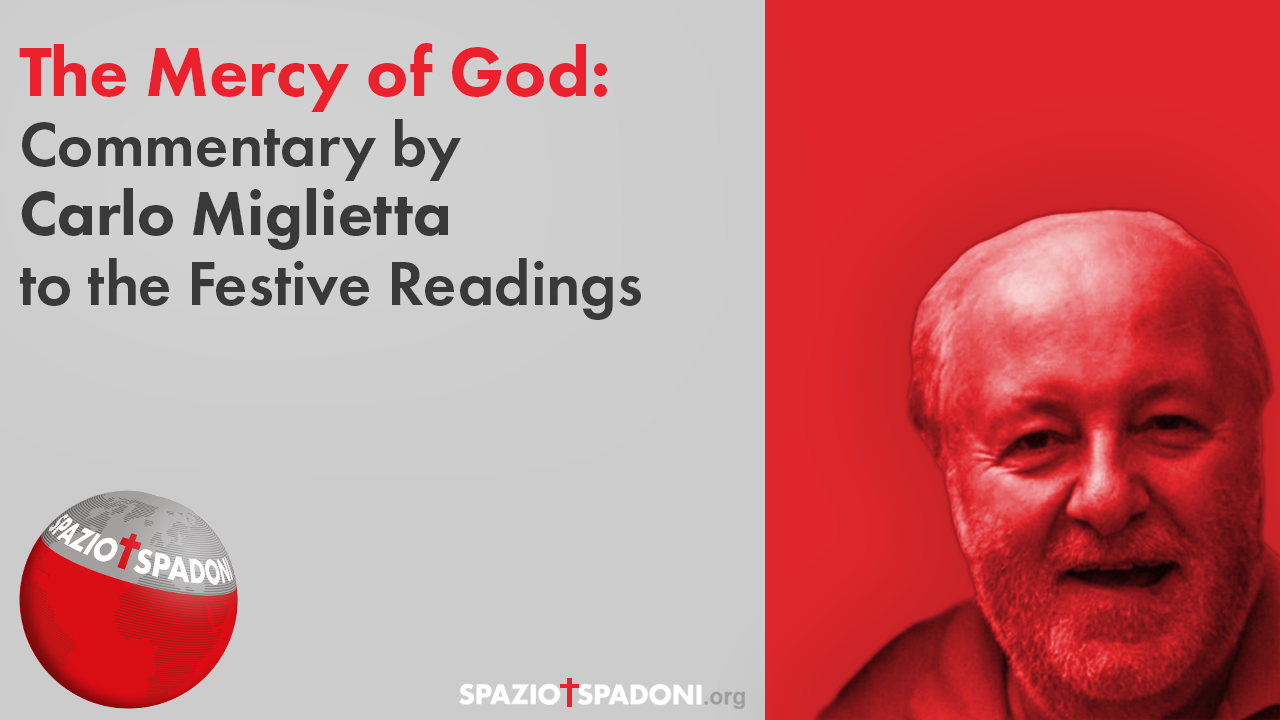
III Sunday Of Lent B – Called to Holiness
Readings: Gen. 3:1-5; 1 Cor. 7:29-31; Mk. 1:14-20
It is the Lord’s time!
Today’s Word calls us to conversion and radical following of the Lord: and this call demands an immediate response, without delay: “Forty days yet…” (Gen. 3:4: First Reading); “The time has now become short” (1 Cor. 7:29: Second Reading); “The time is fulfilled and the Kingdom of God is at hand” (Mk. 1:15): we are asked for the readiness (“right away”: Mk. 1:18: Gospel) with which the first Apostles followed Jesus.
All called to holiness
The call to holiness is for all, celibate and married: and forgive me my celibate readers if I neglect them today, but the second reading reminds us that even Christian marriage, though such an important reality in God’s plan, a “great mystery” because it is a living icon of the love with which “Christ loved the Church and gave his life for her” (Eph 5:32, 25), is nonetheless a “penultimate reality”: “From now on, those who have wives live as if they did not have her” (1 Cor 7:29). And this is not only because in the Kingdom there will no longer be either male or female, but we will be as angels of God (Mt 22:23-32), but because the sole end of every believer’s life is to follow the Lord, the Bridegroom par excellence (Mt 22:11; 25:1-12; 2 Cor 11:2…). The primacy of spousal union with Christ must also be reaffirmed in marriage: “Whoever does not love less … his wife and even his own life cannot be my disciple” (Lk 14:25-27); “I have taken a wife” is not a valid excuse in the face of calling (Lk 14:20).
Following the Lord
To everyone today, married and single, Jesus issues the invitation, “Follow me; I will make you fishers of men” (Mt 4:19). To all, married and single, Jesus commands, “You shall love the Lord your God with all your heart,with all your soul, with all your strength, and with all your mind, and your neighbor as yourself” (Lk 10:27), with good peace to Paul who will say in 1 Cor 7:33 that married people love God with “divided” hearts… To all Jesus addresses the invitation, “Be perfect as your heavenly Father is perfect” (Mt 5:48). For all, the Sermon on the Mount applies, which proclaims blessed, that is, loved in a special way by God, the poor, the afflicted, the meek, the hungry and thirsty for righteousness, the peacemakers, those persecuted for the sake of righteousness and for the name of Jesus (Mt 5:3-11; Lk 6:20-23). For all of them, obviously in different forms, Jesus’ call applies: “Go, sell what you have and give to the poor” (Mt 19:21). To all Jesus reminds “the need to pray always, without tiring” (Lk 21:36). To all Jesus gives the mission, “Go and teach all nations” (Mt 28:19-20). In marriage, too, there is a call not only to poverty, but also to chastity, which is integral belonging to God (Mt 25:1-13), and to obedience, mutual (Eph 5:21) and to the Lord (Mk 14:36). And it is significant that the two pillars of the early Church were a married man, Peter, and a bachelor, Paul. There is a need today more than ever for Christian spouses to reacquaint themselves with the Word of God that calls them to holiness, stimulated by the Second Vatican Council, which reminds us that to it “all the faithful, of whatever state or degree are called” (Lumen Gentium, no. 40): “Christian spouses, by virtue of the sacrament of marriage… help each other to attain holiness in married life” (id, n.11) and “tend to reach more and more their own perfection and mutual sanctification” (Gaudium et Spes, n. 48). Christian spouses must therefore joyfully and eagerly place themselves in the radical following of the Lord, allowing themselves to be guided by the Spirit to live it out in the particularity and concreteness of their conjugal situation, open to God’s creativity, imagination and newness.
